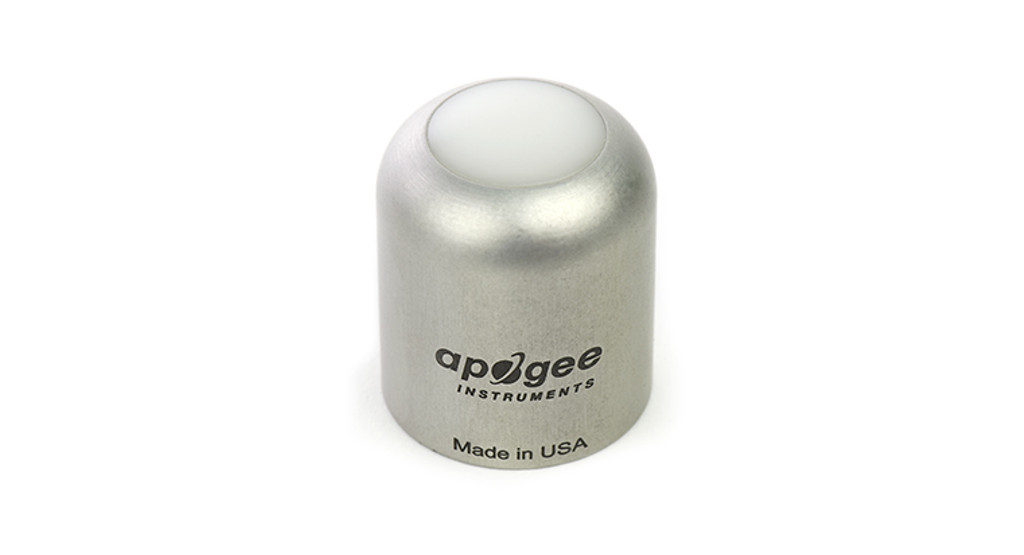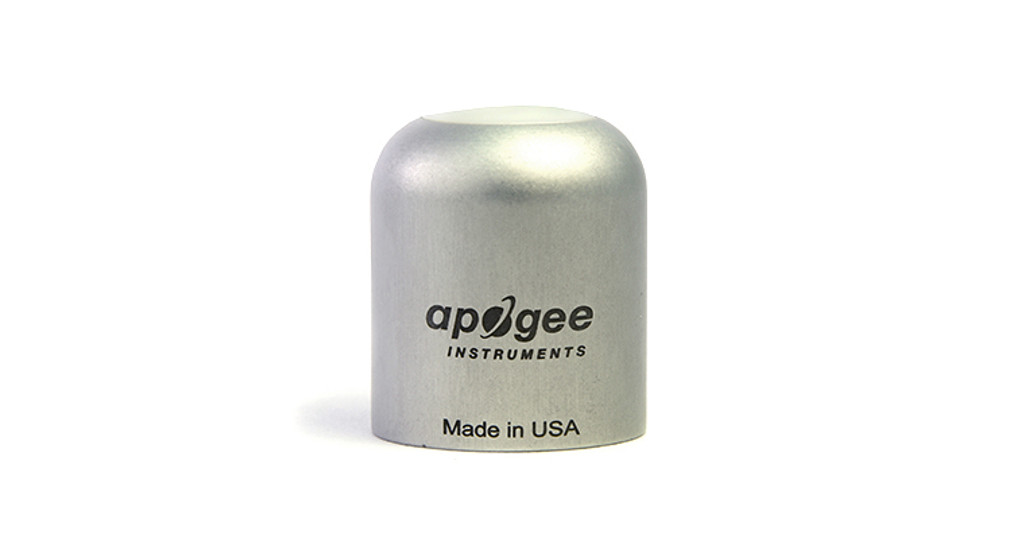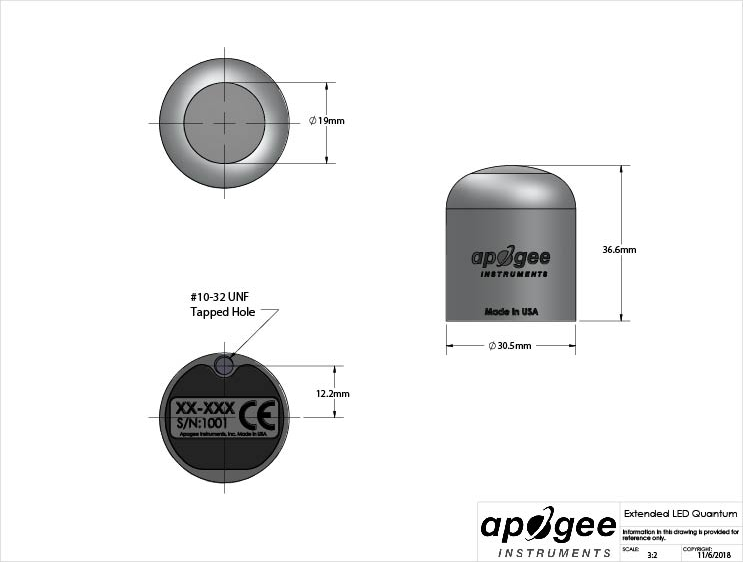Updated:2025-03-13
Views:1583
 WeChat
WeChat
 QQ
QQ
 Online Service
Online Service
 User's Manual
User's Manual
Apogee's newest, cutting-edge ePAR sensor was created in 2021 as an upgrade to our ePFD sensor and designed to measure the newly defined 400-750 nm ePAR radiation range that research has shown to be photosynthetically active, beyond the traditional 400-700 nm range. The SQ-616 ePAR, smart sensor can be connected directly to a computer (Windows or macOS X) via USB for taking spot measurements or graphing and datalogging real-time PPFD using the included software. The sensor can also act as a stand-alone PAR datalogger by simply connecting it to most standard 5 V DC USB power plugs. Internal memory within the sensor head is capable of storing 10,000 user-specified periodic measurements that can be downloaded as a CSV file to a computer for analysis.


The sensor features a rugged, aluminum housing that is fully-submersible and built to withstand harsh conditions. The sensor cable includes an IP68 marine-grade stainless-steel cable connector to simplify sensor removal and replacement from permanent installations for maintenance and calibration. Typical applications of ePAR sensors include measuring total ePAR intensity over plant canopies in all growing environments, monitoring and adjusting grow lights, and researching plant morphogenic activity and photobiology. Many next generation LED fixtures, the sun, and other light sources emit these newly confirmed Far-red photosynthetic wavelengths, but they have not been measurable by traditional 400-700 nm PAR meters until now.
The analog version of this sensor (SQ-610) comes with the inline cable connector placed 30 cm from the sensor head for either standard use as a long-cable pigtail sensor, or for use with our microCache Bluetooth Micro Logger by unscrewing the connector, discarding the long section of cable and then screwing the sensor to the mating connector on the microCache.

| Resolution | 0.1 µmol mˉ² sˉ¹ |
| Calibration Factor | Custom for each sensor and stored in the firmware |
| Calibration Uncertainty | ± 5 % |
| Measurement Repeatability | Less than 1 % up to 4000 µmol mˉ² sˉ¹ |
| Long-term Drift (Non-stability) | Less than 2 % per year |
| Non-linearity | Less than 1 % (up to 4000 µmol mˉ² sˉ¹) |
| Response Time | Software updates every second |
| Field of View | 180˚ |
| Spectral Range | 400 to 750 nm ± 5 nm (wavelengths where response is greater than 50 %) |
| Directional (Cosine) Response | ± 2 % at 45 ˚, ± 5 % at 75 ˚ |
| Temperature Response | -0.11 ± 0.04 % per C |
| Azimuth Error | Less than 0.5 % |
| Tilt Error | Less than 0.5 % |
| Housing | Anodized aluminum body with acrylic diffuser |
| IP Rating | IP68 |
| Operating Environment | -40 to 70 C, 0 to 100 % relative humidity, can be submerged in water up to depths of 30 m |
| Dimensions | 30.5 mm diameter, 37 mm height |
| Mass (with 5 m of cable) | 140 g |
| USB Cable | 4.5 m (15 ft) |
| Current Draw (when logging) | 61 mA |
| Warranty | 4 years against defects in materials and workmanship |
| Manufactured | Made in the USA |
Customer Service QQ
Customer Hotline:
Technical Supports